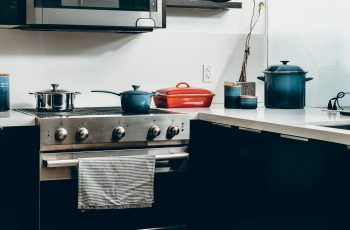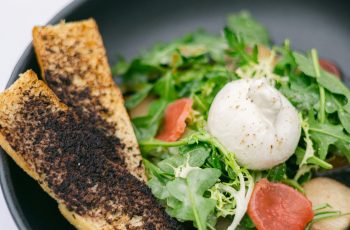Ad Blocker Detected
Our website is made possible by displaying online advertisements to our visitors. Please consider supporting us by disabling your ad blocker.
Ready to add some sizzle to your cooking routine? If you’ve ever wondered whether pressure cookers sound like a jet engine or a gentle breeze, this article is just for you. Today, we’ll explore the age-old question: Are pressure cookers loud? Get ready to uncover the truth about the noise levels of these culinary marvels and discover how they can revolutionize your kitchen experience. Get your apron on, because it’s time to let the pressure out and embark on a flavorful journey!

Introduction
Pressure cookers are convenient kitchen appliances that can help you save time and cook delicious meals. However, one common concern that many people have is the noise level produced by pressure cookers. In this article, we will explore what pressure cookers are, how they work, and delve into the topic of noise level in pressure cookers. We will address common misconceptions, factors that affect noise level, and provide tips to reduce noise. Additionally, we will discuss the importance of noise in pressure cooker safety, user experiences, and reviews.
What is a pressure cooker?
Definition
A pressure cooker is a specialized cooking vessel that allows you to cook food quickly by increasing the atmospheric pressure inside the sealed pot. This high pressure raises the boiling point of water and enables faster cooking times, making pressure cookers a popular choice for busy individuals.
Working Principle
The working principle behind pressure cookers is based on the concept of trapping steam and increasing pressure. When food and liquid are placed inside a pressure cooker, it is heated, causing the liquid to vaporize and turn into steam. The steam increases the pressure inside the cooker, which in turn raises the boiling point of water and cooks the food faster.
Common Misconceptions about Pressure Cookers
All Pressure Cookers are Loud
One common misconception about pressure cookers is that they are all loud. While it is true that pressure cookers produce a significant amount of noise, not all pressure cookers are equally loud. The noise level can vary depending on various factors, including the type of pressure cooker, size and design, materials used, and cooking method.
Noise Level Comparison with Other Cooking Appliances
Another misconception is that pressure cookers are louder than other cooking appliances. While pressure cookers do produce noise, it is important to note that other cooking appliances such as blenders, mixers, and food processors can also generate considerable noise. Comparatively, the noise level of pressure cookers is often within a similar range or even lower than these appliances.
Factors Affecting Noise Level in Pressure Cookers
Type of Pressure Cooker
Different types of pressure cookers have varying noise levels. Traditional stovetop pressure cookers, for example, tend to produce more noise due to the direct heat source and the bubbling of liquid inside the pot. Electric pressure cookers and modern multi-cookers like the Instant Pot, on the other hand, are designed to be quieter and have insulation features that help reduce noise.
Size and Design
The size and design of a pressure cooker can also influence its noise level. Larger pressure cookers may have a greater volume of food and liquid, resulting in more steam and potentially more noise. Additionally, the design of the pressure cooker’s lid and sealing mechanism can affect noise level, as a secure and tight seal can help minimize noise.
Material Used
The material used in the construction of pressure cookers can impact noise level. Stainless steel pressure cookers tend to be quieter than those made of aluminum due to the superior heat distribution and insulation properties of stainless steel.
Cooking Method and Ingredients
The cooking method and ingredients used can also affect the noise level of a pressure cooker. Foods that release more steam, such as stews or soups with high liquid content, may lead to increased noise. Likewise, cooking at higher temperatures or using rapid release methods can result in louder noise due to the sudden release of steam.

Noise Level Comparison of Different Pressure Cookers
Traditional Stovetop Pressure Cooker
Traditional stovetop pressure cookers are known to be louder compared to other types of pressure cookers. The direct heat source and the open flame used for cooking contribute to the noise produced. However, advancements in stovetop pressure cooker design have led to the development of more noise-reducing features, such as improved gasket seals and pressure release mechanisms.
Electric Pressure Cooker
Electric pressure cookers, such as the popular Instant Pot, are generally quieter compared to stovetop pressure cookers. These appliances use electric heating elements and have built-in insulation to reduce noise. The sealed environment and advanced cooking technology help minimize the noise created during operation.
Instant Pot
The Instant Pot is a multi-cooker that has gained immense popularity in recent years. It offers the convenience of various cooking functions, including pressure cooking, sautéing, and slow cooking. Users often report that the Instant Pot is quieter than traditional stovetop pressure cookers, making it a favorable option for those seeking a more peaceful cooking experience.
Tips to Reduce Noise Level in Pressure Cookers
Proper Sealing and Venting
Ensuring that your pressure cooker is properly sealed and vented is crucial for minimizing noise. Check the gasket and other sealing components regularly to make sure they are in good condition. Follow the manufacturer’s instructions for proper venting techniques, as improper venting can contribute to excess noise.
Using Cushioning Materials
Placing cushioning materials, such as a silicone mat or towel, underneath your pressure cooker can help absorb vibrations and reduce noise. Additionally, using a trivet or rack inside the pressure cooker can provide a buffer between the food and the bottom of the pot, further reducing noise caused by direct contact.
Maintaining and Cleaning
Regular maintenance and cleaning of your pressure cooker can help keep it in optimal condition and reduce noise. Clean the sealing components, release valves, and other parts according to the manufacturer’s instructions. Any residue or debris that accumulates can affect the sealing and venting, leading to increased noise during operation.
Choosing Quieter Models
If noise level is a significant concern, consider choosing pressure cookers specifically designed to be quieter. Research different models and read reviews from other users to determine which ones are known for their noise reduction features. Some manufacturers may advertise noise reduction technologies, such as soundproofing or silent operation, in their product descriptions.

Safety Considerations
Importance of Noise in Pressure Cooker Safety
While noise level may not be the primary safety concern when using a pressure cooker, it does play a role in indicating the state of the appliance. Unusual or excessive noise could be a sign of improper sealing, venting issues, or other malfunctions that may compromise the safety of the pressure cooker. Therefore, it is important to pay attention to any abnormal noises and address them promptly.
Testing and Certifications for Noise Level
Pressure cookers undergo rigorous testing to ensure their safety and performance. Some manufacturers may also conduct noise level testing and provide certifications specific to noise reduction. When purchasing a pressure cooker, look for trusted certifications such as UL (Underwriters Laboratories) or CSA (Canadian Standards Association) to ensure the appliance meets industry standards for noise safety.
Monitoring Noise during Operation
While noise level itself does not directly indicate the progress or completion of cooking, it can serve as a helpful indicator of the pressure cooker’s performance. Familiarize yourself with the typical noises produced by your pressure cooker and pay attention to any sudden changes or unusual sounds during operation. This can help you identify and address any potential issues that may affect the cooker’s functionality or safety.
User Experiences and Reviews
First-hand Experiences of Users
Reading about the experiences of other users can provide valuable insight into the noise level of different pressure cookers. Many users share their experiences in online forums and communities, discussing the noise level of specific models and offering tips to reduce noise. Considering user experiences can help you make an informed decision when purchasing a pressure cooker.
Comparative Reviews of Different Pressure Cookers
Comparative reviews conducted by reputable websites and publications can also provide a comprehensive overview of the noise level of different pressure cookers. These reviews often assess various aspects of pressure cookers, including noise, and compare different models side by side. Consulting these reviews can help you narrow down your options and choose a pressure cooker that suits your noise preferences.
Conclusion
Pressure cookers can be a convenient addition to any kitchen, allowing you to cook meals quickly and efficiently. While some pressure cookers may produce noise during operation, there are various factors that affect noise level, and options are available to reduce noise. By understanding the different types of pressure cookers, considering noise reduction features, and following proper maintenance practices, you can find a pressure cooker that strikes the perfect balance between performance and noise level. Safety considerations, such as monitoring for abnormal noises and choosing certified pressure cookers, are also essential. Ultimately, the experience of pressure cooker users and comparative reviews can provide further guidance in selecting the right pressure cooker for you.
References
- Are Pressure Cookers Loud by Cooking Light
- Pressure Cooker on Wikipedia
- Instant Pot official website

